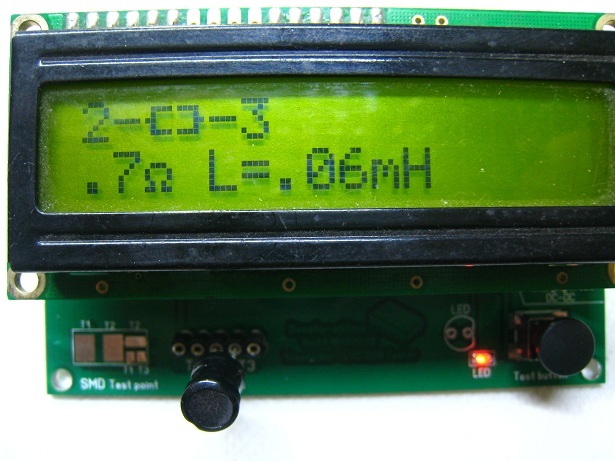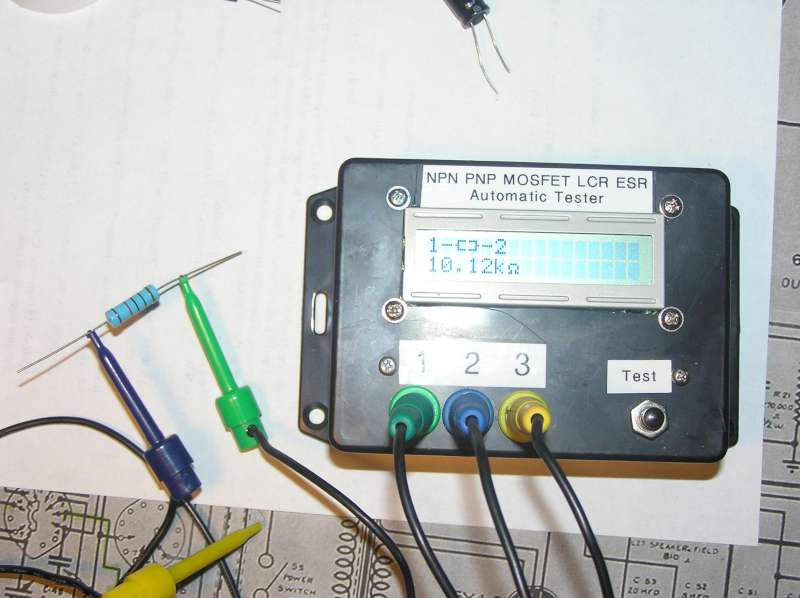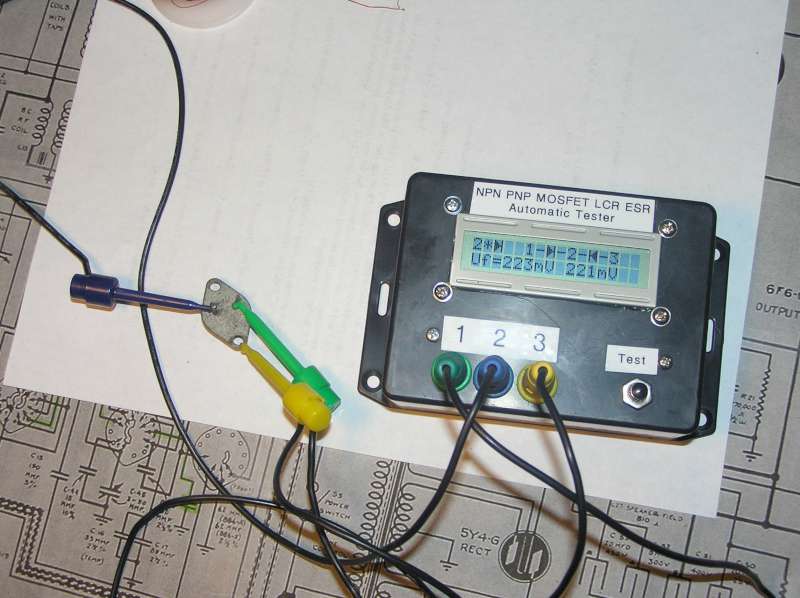A few weeks ago I stumbled over this fellow on fleabay:

.
What the heck, for $20 it looked like it could be fun, especially for a dilettante like me with a drawer full of oddball small signal mystery transistors. I put it in a project box, added some leads and a switch and hooked up a 9v battery. Operation is simple: connect the component (leads in any order), push test. It tells you what it is and the value:
A 1% resistor:

A capacitor (this one must have real low ESR -- usually there's a value in ohms):

A transistor (note that it tells you if it's PNP or NPN and which lead is connected to what, gain and forward voltage):

How about an inductive load?

FAIL! That's an IGBT, not a capacitor. (To be fair, it's rated 600v/40amps):

Partial Fail. This is a power transistor, not a pair of diodes. Oh well, at least I can figure out from that if it's PNP or NPN:

FAIL again -- Ooops, no it's not. My mistake. That really IS a diode that got mixed in with the SCRs -- look at the number:

Ok, here's a real SCR (GAC indicates which lead connected to the Gate, Anode and Cathode, respectively):

But an LM317 threw it for a loop:

The documentation is non-existent. I accidentally discovered a self-test/calibration mode by connecting all 3 leads to each other and pushing the button. On-screen directions kind of guide you through each numbered step if you scratch your head long enough deciphering them. A 100nF capacitor is required at one point (step 4, IIRC).
Anyway, a cute little gizmo, certainly worth the $20 and it seems reasonably accurate within the scope of it's limitations.